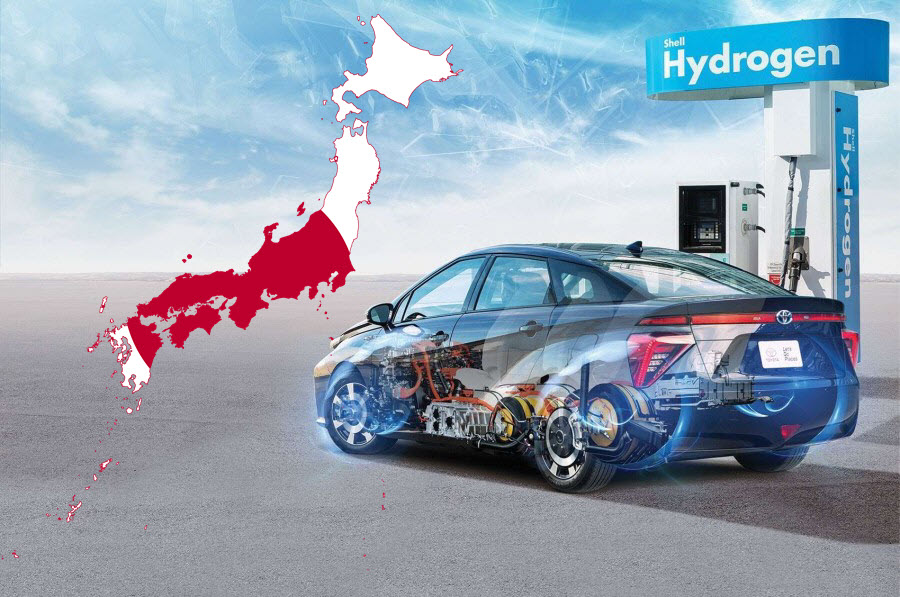
Kobe/Kansai Area, Japan –Various Japanese industries and energy companies involved in hydrogen projects have launched a new council named, “Kobe/Kansai Hydrogen Utilization Council” (hereinafter, “Council”) with the goal of developing hydrogen utilization methods and establishing a hydrogen supply chain in the Kobe/Kansai area. Marubeni Corporation will organize the Council as Lead.
Through the Council’s activities, Marubeni will promote realistic approaches for the development of CO2-free hydrogen by 2030 and contribute to the achievement of a decarbonized society.
The Council will strive for promoting the establishment of a concrete structure of a demonstration project utilizing hydrogen for commercialization by around 2025. The Council will also draw a pathway to realize large-scale commercialization of hydrogen utilization by 2030
In 2018 Marubeni participated in the Hydrogen Energy Supply Chain pilot project between Australia and Japan and then joined the CO2-free Hydrogen Energy Supply-chain Technology Research Association (“HySTRA”). Additionally, Marubeni is conducting a demonstration to establish a low carbon hydrogen supply chain in Tomiya City, Miyagi Prefecture in 2017, and a feasibility study for the construction of a hydrogen supply chain in Namie
Town, Fukushima Prefecture in 2020. Marubeni will continue to proactively engage in hydrogen-related projects working towards the achievement of a decarbonized society.
The companies currently involved are Electric Power Development Co., Ltd., ENEOS Corporation, Iwatani Corporation (Lead), The Kansai Electric Power Company, Incorporated, Kawasaki Heavy Industries, Ltd., Kawasaki Kisen Kaisha, Ltd., Kobe Steel, Ltd., Marubeni Corporation (Lead), Mitsubishi Power, Ltd., Obayashi Corporation, and Shell Japan Limited.
The Kansai area is one of the most advanced regions in the world with regardstohydrogen-related projects. Namely,in addition to the existing hydrogen related facilities in private sector, as New Energy and Industrial Technology Development Organization (hereinafter,“NEDO”) grant projects, several projects are currently underway inthe area, including the hydrogen energy supply chain pilot project (Liquefied Hydrogen Receiving Terminal in Kobe Airport Island)implemented byCO2-free Hydrogen Energy Supply-chain Technology Research Association (“HySTRA”),the demonstration project atKobe Port Island namely Hydrogen Co-Generation System (hereinafter “Hydrogen CGS”) andinvestigations on the possibilities for the introduction of hydrogen power generation.
In order to acceleratethe concrete actions andtoensure the achievement ofthe national “Basic Hydrogen Strategy” and “Strategic Roadmap for Hydrogen and Fuel Cells”, the companies promotinghydrogen-related projectsin the Kansai area have joined together and founded the Council. By uniting experiences from the existing projects with the knowledge and experience possessed by the companies, the Council will implement a study ofthe business model for large-scale commercialization ofhydrogen utilizationby 2030.
Additionally, the Agency for Natural Resourcesand Energy at theMinistry of Economy, Tradeand Industry, NEDO and Kobe City which is participating in Hydrogen CGS,will jointhe Council as observers.
The following 3 tasks are considered “Priority Actions” for the Council:
- To implement a study of the business models of utilizing hydrogen in the Kansai area by combining thesupply and demand sides in order to establish a large-scale hydrogen supply chain
- To build a roadmap for the implementation of hydrogen utilization business models in the Kansai area
- To identify potential implementation issuesand make policy recommendations to national and/or local governments
Lastly, in order to realize a hydrogen-based society, it is essential to create regulatory framework and to implement regulatory reform,in additionto the establishment oftechnology and the reduction of hydrogen production costs on the business side. Therefore, the Council will engage with both the public and private sectors and study business models to identify issues,accelerate necessary actions and make policy recommendations for the large-scale commercialization of hydrogen utilization by 2030.
Read the most up to date Fuel Cell and Hydrogen Industry news at FuelCellsWorks




